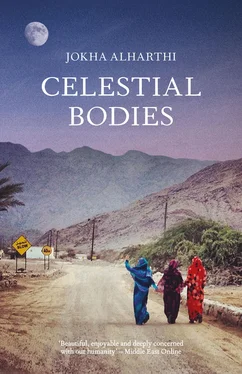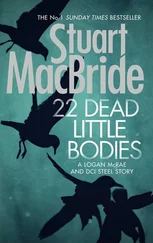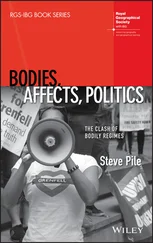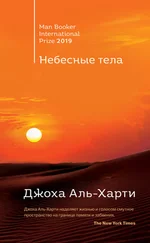Stabs of lightning pierce me like the wail of the grieved cameleer
Why, sad one, are you somnolent and dull?
Its grim swords clove the heavens, in an army of clouds to rush onward
O homeland sorely missed, clouds and rain over all.
And then when I got to certain other lines he made me repeat them tens of times.
Those places in which I could not stay on and on
Yet in my hope-filled mind, still they reside
Far away have I gone but never have I left them:
But then, how many times is body torn from soul!
Then he would take over, reciting the next section of the poem himself, but only getting so far, always as far as the same line.
I departed them, overruled, and I could not prevail
No person can surmount what is decreed
With a heavy sigh, almost a moan, he would ask me to go on while he listened without another word. He was completely infatuated with Abu Muslim al-Bahlani and he told me all about the man. He was so many things: a reformer, a man of enlightenment, and it seems he had some kind of intuitive creativity. Early in the century, Abu Muslim founded the first Omani newspaper. He called it Success and published it from Zanzibar, where he was living then. And his poetry collection was the first volume of verse by an Omani ever published. He wrote many other books, like, on Islamic jurisprudence, and on morals. My father was always keen to get his hands on first editions of whatever Abu Muslim wrote. Abu Muslim supported the Imams and scholars in Oman heart and soul, even though fate never allowed him to meet most of them. My father handled his affairs while he was in exile. He worked closely with some other supporters to print al-Bahlani’s poetry along with some other Omani books at the Aleppo Press in Cairo. We spent long hours stacking up the copies, organising them so customers could see them, but I have no idea, and I didn’t then, how my father planned to market them, or even distribute them. Who would read them, anyway?
My father enrolled me in the College of Engineering because, he said, the future in Oman was for engineers and lawyers. And time after time he hinted — very clearly! — that if I knew what was good for me I wouldn’t so much as glance at any Egyptian girl. In fact, he put it to me bluntly. We may live here but we’re not from here. We won’t leave anything of ourselves here. When we die our coffins will be carried to Oman. That’s where we’ll be buried.
This kept me awake at night — the attempt to imagine this place, which I barely had any childhood memories of, since I had been made to leave it so early. What particularly tormented me was the image of our coffins, black and gloomy, lined up next to each other. My father’s coffin, my mother’s, mine, my sister’s, my brother’s coffin — lying in the hold of an airplane taking off for the impossible journey that we would never make while alive, the journey from Cairo to Muscat. And the image of us as dead, us, lifted out of our boxes by relatives I would never have gotten to know, so we could be buried in her shrouds under the burning sun west of al-Awafi, in the graveyard where not a single tree grew, not even any scrubby little desert bushes. So many times I hoped my father would reverse his plan, that he would have us buried in one of Cairo’s cemeteries, so noisy with movement and life, with their vendors and Qur’an reciters — or that he would put us in an airplane, live bodies rather than corpses, headed for Muscat. That he wouldn’t already assign our coffins to the hold.
When I could finally shake myself loose, when I managed to no longer live inside the image of me he had in his head, I finally found out what freedom tastes like. It was such a good taste! People choose their own books, ones they actually want to read. And their own friends, and the cities they’re fond of. How liberated a person feels when it’s finally no longer a question of being just an extension or embodiment of someone else’s fancy, even if that someone else is your father. My chronic headaches ended and I lost my pathological fear of being inside a closed-in dark place. Suddenly I was addicted to spending all my hours in the streets of Cairo, my streets, I had not known any others — and with real friends, ones who yelled out slogans as they marched in the streets, who drew pictures and had dreams and could tease each other. People who weren’t simply the faded mental creations of their families or their elders, and whose blurred identities or boundaries made them seem more like ethereal angels whom I couldn’t actually see or touch. Issa the Emigrant went quiet. He didn’t come to my first exhibition, he didn’t read a single article on my art and he treated me with a coldness that was probably both disdain and despair. But just when I began to forget that there existed a place called Oman, my sister Ghaliya died.
I hadn’t ever had the feeling that our worlds were so linked, so frighteningly enmeshed, the worlds of me and my family, until Ghaliya died. Our worlds fell apart. We all found the world we inhabited collapsed around us, My father and mother, me, my brother. In front of the simple question of where to bury her, it suddenly became frighteningly clear to me — to me, the free, the liberated, artist — whose head was full of freedom — how deep the hidden ties between us went, how strong they were, and how my world could be destroyed in a moment if theirs caved in.
I think it was only two days before my father’s hair turned white! We packed our cases. We returned, all of us, still alive. Not Ghaliya though. She was a shadow of my nightmarish imagination. In her coffin in the hold.
No longer was the voyage to Oman an impossible trip. It wasn’t just a round-trip ticket, either, a little space in which we would bury a beloved sister, and return in all simplicity to Cairo, to our home, our work, our friends. No. This unexpected trip itself bonded us in some hidden but really profound way. The trip was the strong rope that tied us together and would yank us out of the dream and the nightmare both, at the same time. It freed us from the idea that returning was impossible or unreal. It made returning into something you could actually do, something likely, and — we suspected it then — permanent, too. Ghaliya paid for our liberation with her death. There had to be an offering, a sacrifice. A bridge across which my father walked, and we followed, to Oman. Ghaliya’s dead body, her coffin, which was carried to the treeless cemetery in al-Awafi — the coffin of the daughter born in Cairo, the daughter who lived in Cairo — was our bridge.
Asma, still a bride, came to visit her father. Not long after her wedding he had suddenly come down with a fever no one could diagnose, and he was bedridden. His temperature wouldn’t come down. When Azzan saw her he leaned back against a cushion and asked her to recite some of al-Mutanabbi’s poetry. Asma’s voice was subdued at first but it started gathering fervour as she recited.
With the sedan-chairs’ departure my nights are long
For lovers’ nights stretch endless
They show me the full moon I have no craving for
And hide a moon to which there is no way
After the loved ones, I have not lived in solace
But ahh, the misfortunes — those still must I bear
Her father’s hand went up and Asma stopped. Staring at his hands, she noticed how pale and weak they looked, and how white the hair was at the roots, where it was parted. She felt confused. The room seemed very hot, radiating his fever. She was embarrassed at the traces of henna still visible on her hands. She wished she had the courage to use her hands, to press them against her father’s robe, to make him lie flat on his bed and then to smooth his hair. The air was so heavy. She had an odd urge to apologise to him but she didn’t know why.
Читать дальше












